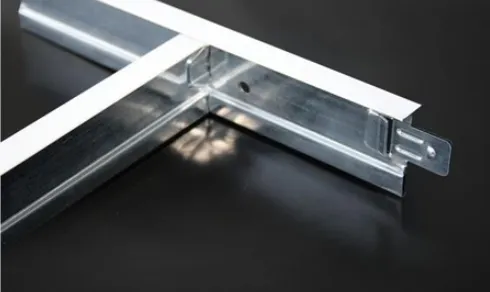Nov . 10, 2024 23:07 Back to list
Exploring the Benefits and Applications of PVC Gypsum in Modern Construction
The Role of PVC Gypsum in Modern Construction
In the ever-evolving world of construction and building materials, one product that has garnered increased attention is PVC gypsum. This innovative material combines the properties of polyvinyl chloride (PVC) with gypsum, creating a versatile and efficient solution for various architectural and interior design applications. As the demand for sustainable and durable building materials grows, understanding the benefits and applications of PVC gypsum is essential for industry professionals and homeowners alike.
Composition and Properties
PVC gypsum is primarily composed of gypsum, a natural mineral widely used in construction for its excellent properties such as fire resistance, sound insulation, and thermal performance. In addition, the incorporation of PVC enhances these characteristics. PVC is known for its robustness, flexibility, and water resistance, making PVC gypsum an ideal candidate for areas that experience moisture fluctuations or require durability, such as kitchens, bathrooms, and commercial spaces.
The combination of these two materials results in a lightweight product that is easy to handle and install. This lightweight nature not only reduces transportation costs and time but also minimizes the structural load on buildings, allowing for greater design freedom. Furthermore, PVC gypsum panels can be manufactured in various sizes and finishes, providing ample customization options for architects and designers.
Advantages of PVC Gypsum
1. Moisture Resistance One of the most significant advantages of PVC gypsum is its resistance to moisture. Traditional gypsum boards can be susceptible to water damage, leading to mold growth and structural issues. PVC gypsum, on the other hand, does not absorb water, making it an ideal choice for areas with high humidity levels.
2. Ease of Installation The lightweight nature of PVC gypsum panels simplifies the installation process. They can be easily cut to size and installed quickly, significantly reducing labor costs and project timelines. This ease of installation is especially beneficial in large-scale commercial projects where time is of the essence.
pvc gypsum

3. Fire Resistance Like traditional gypsum, PVC gypsum has inherent fire-resistant properties. This makes it a suitable option for residential and commercial buildings where fire safety regulations must be adhered to. The combination of PVC and gypsum helps in slowing down the spread of flames, providing essential time for occupants to evacuate.
4. Sound Insulation PVC gypsum offers excellent sound insulation properties, making it an excellent choice for residential buildings, hotels, and commercial spaces requiring acoustic treatment. The dense composition of the material helps in reducing noise transmission, creating a more comfortable environment for occupants.
5. Eco-Friendly Option In a time where sustainability is a major concern, PVC gypsum stands out as an eco-friendly alternative. It is created from abundant natural resources and can often be recycled, reducing environmental impact. Manufacturers are increasingly adopting green practices, ensuring that their production processes are efficient and sustainable.
Applications
PVC gypsum is versatile, finding applications in a wide range of settings. In residential construction, it is often used for ceilings, wall partitions, and decorative elements. Its moisture resistance makes it particularly suitable for bathrooms and kitchens where hygroscopic materials can lead to damage over time.
In commercial spaces, PVC gypsum’s sound insulation properties are invaluable, particularly in office buildings and hotels where noise control is critical. Additionally, its durability makes it ideal for high-traffic areas such as lobbies, conference rooms, and hallways.
Conclusion
As the construction industry continues to seek innovative materials that meet the demands of modern building practices, PVC gypsum presents a compelling option. Its unique combination of properties such as moisture resistance, ease of installation, fire resistance, and sound insulation makes it an attractive choice for various applications. As architects, designers, and builders embrace the benefits of PVC gypsum, it is poised to become a staple in contemporary construction, contributing to safer, more sustainable, and aesthetically pleasing environments. The future of building materials is here, and PVC gypsum is leading the way.
-
Quality Ceiling Trap Doors & Access Panels | Easy & Secure AccessNewsAug.30,2025
-
Durable Ceiling T Grid Systems | Easy InstallationNewsAug.29,2025
-
PVC Gypsum Ceiling: Durable, Laminated Tiles for Modern SpacesNewsAug.28,2025
-
Pvc Gypsum Ceiling Is DurableNewsAug.21,2025
-
Mineral Fiber Board Is DurableNewsAug.21,2025
-
Ceiling Tile Clip Reusable DesignNewsAug.21,2025







